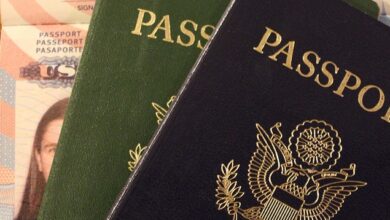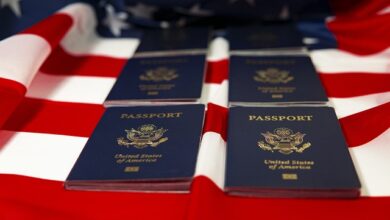Fast-Track Naturalization: Who Is Eligible?

Becoming a citizen of a country through naturalization is often a long and rigorous process that requires applicants to meet specific legal, residency, and integration criteria. However, many countries offer fast-track naturalization programs designed to expedite the citizenship process for certain individuals who demonstrate exceptional contributions, strong ties, or unique circumstances. Below, we’ll explore who qualifies for fast-track naturalization and how these programs work.
1. What Is Fast-Track Naturalization?
Fast-track naturalization refers to an accelerated pathway to citizenship that bypasses some of the standard requirements, such as lengthy residency periods or complex application procedures. These programs are typically reserved for individuals who bring significant value to the nation or have compelling reasons for expedited processing.
The primary goal of fast-track naturalization is to recognize and reward those who contribute meaningfully to society, strengthen national security, or foster cultural, economic, or humanitarian ties with the country.
2. Categories of Eligibility for Fast-Track Naturalization
A. Military Service Members
One of the most common categories for fast-track naturalization involves individuals serving in the armed forces. Many countries allow foreign nationals who enlist in their military to apply for citizenship on an expedited basis.
- Eligibility Criteria:
- Be a lawful permanent resident (or hold equivalent status).
- Serve actively in the military during times of conflict or peace.
- Meet good moral character and loyalty requirements.
- Pass basic language and civics tests.
- Example: In the United States, members of the U.S. Armed Forces can qualify for citizenship after only one year of service, provided they meet all other conditions.
B. High-Skilled Professionals
Countries often seek to attract top talent in fields such as science, technology, engineering, mathematics (STEM), medicine, and arts. Fast-track naturalization may be available to highly skilled professionals whose expertise benefits the nation.
- Eligibility Criteria:
- Hold a job offer or employment contract from a reputable organization.
- Demonstrate exceptional skills or achievements in your field.
- Contribute significantly to the economy, innovation, or development of the country.
- Example: Canada’s Express Entry system prioritizes immigrants with high human capital scores, potentially leading to faster citizenship pathways.
C. Investors and Entrepreneurs
To stimulate economic growth, some nations offer fast-track naturalization to wealthy investors or entrepreneurs willing to inject capital into the local economy.
- Eligibility Criteria:
- Invest a specified amount of money in government-approved projects or businesses.
- Create jobs for citizens or permanent residents.
- Maintain compliance with investment rules over a set period.
- Example: Portugal’s Golden Visa program grants residency rights to investors, which can later lead to citizenship if residency requirements are fulfilled.
D. Spouses of Citizens
Marriage to a citizen of the country can significantly shorten the naturalization timeline. Spousal fast-tracking aims to facilitate family reunification while ensuring genuine relationships.
- Eligibility Criteria:
- Be legally married to a citizen of the country.
- Prove the marriage is legitimate and not entered into solely for immigration purposes.
- Fulfill minimal residency requirements (often shorter than regular applicants).
- Example: In Germany, spouses of German citizens can apply for citizenship after three years of marriage and residency instead of the usual eight years.
E. Refugees and Asylum Seekers
In cases of humanitarian crises, certain refugees or asylum seekers may qualify for expedited citizenship processes to ensure their safety and integration.
- Eligibility Criteria:
- Have been granted refugee or asylum status.
- Demonstrate a strong connection to the host country.
- Meet integration requirements, such as learning the language and understanding the culture.
- Example: Sweden offers simplified citizenship procedures for recognized refugees who have resided in the country for at least four years.
F. Individuals with Exceptional Contributions
Some countries extend fast-track naturalization to individuals who make extraordinary contributions to society, such as athletes, artists, scientists, or philanthropists.
- Eligibility Criteria:
- Show evidence of outstanding achievements or global recognition.
- Highlight how your contributions align with national interests.
- Example: France has historically offered citizenship to prominent figures who enhance the country’s reputation internationally.
3. Key Considerations for Fast-Track Naturalization
While fast-track programs streamline the citizenship process, they still require careful attention to detail:
- Residency Requirements: Even under fast-track schemes, most countries demand a minimum period of legal residency before applying for citizenship.
- Language Proficiency: Demonstrating fluency in the official language(s) remains a critical component of naturalization.
- Integration Efforts: Applicants must show a commitment to integrating into the host society, including knowledge of history, laws, and cultural norms.
- Background Checks: Security screenings and criminal record evaluations are standard practice to ensure public safety.
4. Country-Specific Examples
United Kingdom
The UK allows fast-track naturalization for British Army recruits, spouses of UK citizens, and individuals with exceptional talents in science, engineering, or the arts.
Australia
Australia provides expedited pathways for permanent residents working in critical sectors, such as healthcare or IT, and for those making substantial investments in the Australian economy.
Germany
Germany accelerates citizenship applications for EU citizens, refugees, and dual nationals, depending on individual circumstances.
United Arab Emirates
Recently, the UAE introduced a citizenship-by-investment program targeting entrepreneurs, doctors, scientists, and artists who contribute to national progress.



